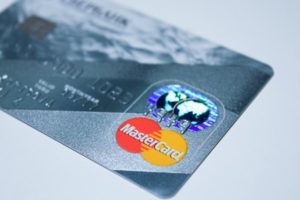Anyone with a low credit score has asked the questions: “How can I improve my score?” and “How fast will it change?” There are several answers to the first question, and we’ll explain some of the best ways to improve your credit score below. The second question, however, has one answer… slowly. There is no quick fix for your credit score. It improves over a period of demonstrating responsible credit habits. It may sound unfair, but poor credit use will impact you quickly, and good behavior gets rewarded slowly over time. That’s why it’s called credit history. Follow our credit counseling advice to build a solid history and improve your score.
- Pay On Time – Do not miss a payment due date on any of your debts. This includes credit cards, mortgages, auto loans, and store cards. Making on-time payments over a long period is the most beneficial thing you can do for your credit score.
- Don’t Carry a Balance – If possible, repay your debts in full each month. Obviously, this may not be possible for things like your mortgage, car payment, or other large loans. However, carrying a balance on your credit cards can hurt your score, especially if you carry a large balance, or carry close to your credit limit. This can indicate that you are overextended, which is a red flag to creditors. It’s good to have credit available, but bad if you’re using a lot of it.
- Don’t Have too Many Credit Cards – How many is too many? It’s unclear because FICO keeps a tight lid on how they calculate your credit score. But we do know that opening new lines of credit actually has a negative impact on your score in the short-term. The longer you have an account, the better – as long as you always make your payments on time and don’t borrow up to the limit. In the long run it is fine, as it will add to your credit history.
- Don’t Close an Account Unless It’s Frivolous – Closing a little-used account may actually be the best thing for you in the long run. Just be aware that doing so can have a negative impact on your credit score in the short-term (similar to a new line of credit). It will lower your available credit and increase your percentage of credit used.
- Take Out a Small Loan – This will add variety to the types of credit that you have (which looks good on your report). You can do this even if you don’t need a loan. In fact, this ensures that you’ll be able to pay it back without problem. This is a good way to build up some positive credit history.
- Check Your Credit Report & Fix Errors – Go to AnnualCreditReport.com and request your credit report from all 3 credit reporting agencies (Equifax, Experian, and TransUnion). If any of the reports have inaccurate information, you can dispute it by contacting the agency.
*Bonus Tip: For consumers having trouble obtaining credit.
- Obtain a Secured Credit Card or Loan – These lines of credit require you to put down collateral, ensuring repayment of the debt. The higher your deposit, the higher your credit limit. Once the debt is repaid, the collateral is returned to you. This way, the lender is taking less risk, and you are getting a credit card to demonstrate responsibility and thus building your credit history.
If you’re struggling to pay off debt, ACCC can help. Schedule a free credit counseling session with us today.






